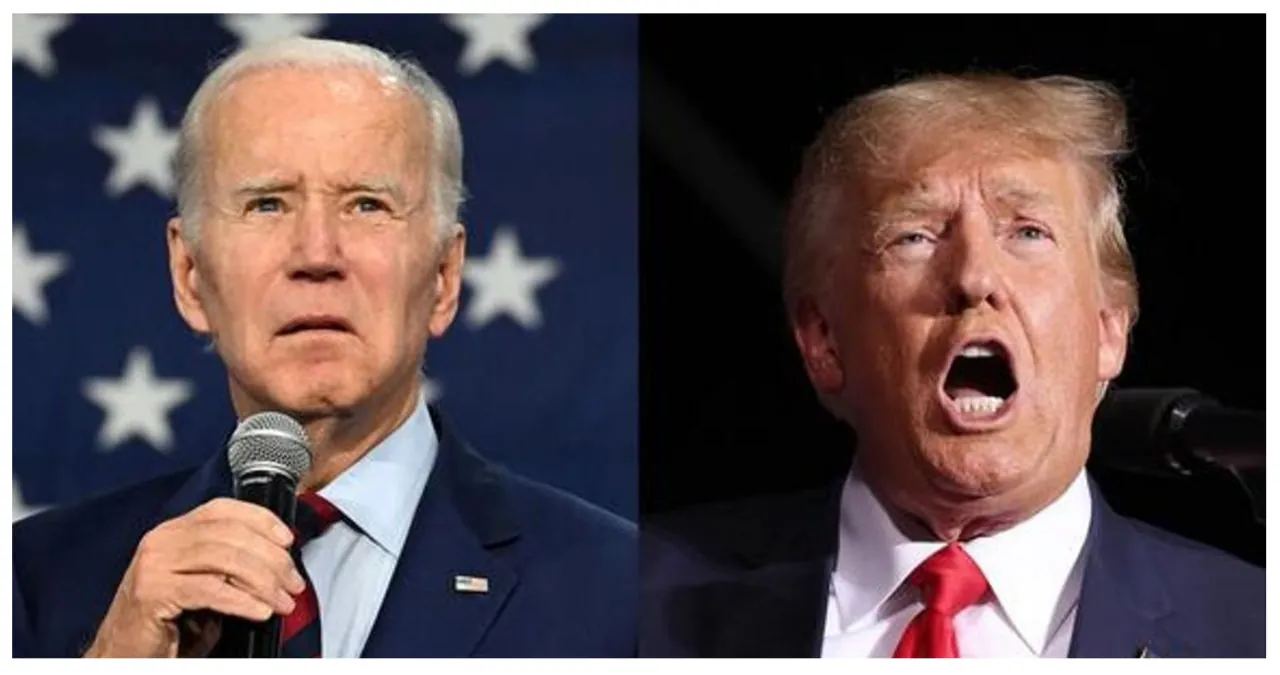Texas is one of five states that want Joe Biden removed from the ballot. Can they do it?
Lt. Governor Dan Patrick suggested on Fox News that Joe Biden should be removed from the 2024 ballot in Texas. He made this proposal in light of a recent decision by the Colorado Supreme Court to ban Donald Trump from the ballot, citing the XIV Amendment.
Patrick is not the only one facing this situation.
Republican lawmakers in Pennsylvania, Arizona, and Georgia have joined Texas in an effort to exclude the current president from their ballots. It’s worth noting that New Hampshire has decided not to include Biden on the Democratic primary ballot, but this is due to procedural reasons rather than legal ones.
The decision made by four states to eliminate the voting rights of a sitting president highlights a deepening and increasingly polarized political division within the United States.
The Colorado decision to remove Trump from the ballot is rooted in Section 3 of the XIV Amendment to the U.S. Constitution, which is commonly referred to as “the Disqualification Clause.”
No person shall be a Senator or Representative in Congress, or elector of President and Vice-President, or hold any office, civil or military, under the United States, or under any State, who, having previously taken an oath, as a member of Congress, or as an officer of the United States, or as a member of any State legislature, or as an executive or judicial officer of any State, to support the Constitution of the United States, shall have engaged in insurrection or rebellion against the same, or given aid or comfort to the enemies thereof. But Congress may by a vote of two-thirds of each House, remove such disability.
The Colorado Supreme Court has determined that there is evidence to support the involvement of Trump in the insurrection on January 6. As a result, he is now ineligible to appear on the presidential ballots in the state.
GOP lawmakers in other areas contend that if Trump can be excluded, then Biden can also face the same fate. Their argument is based on the current immigration crisis at the Southern border and alleged corrupt dealings in China, which they believe could be considered insurrection. According to their reasoning, if this is the case, then Biden should be disqualified as well.
Texas Governor Greg Abbott has continuously described the situation at the Texas-Mexico border as “chaos” and “an invasion.” Abbott, along with the Texas GOP and some Texas Democrats, has criticized the Biden administration for its mishandling of the issue.
Critics of Biden, including Abbott, argue that the administration’s policies, especially on immigration, have led to a rise in illegal border crossings. They believe that this situation necessitates a more stringent approach to border security, to which the administration has partially acquiesced.
The Republican-led House Oversight Committee is currently conducting an impeachment inquiry into Biden and his alleged involvement in his son Hunter’s foreign business dealings. Experts have criticized this inquiry as “the weakest” attempt at a presidential impeachment in U.S. history. Despite GOP claims of a mountain of evidence, no substantial proof has emerged thus far, making their assertions appear unfounded.
The legislators’ campaign to remove Biden from their states’ ballots is not just a retaliatory measure.
The protesters are expressing their disapproval of what they perceive as a significant change in the government’s direction and principles. This is not just a recent development, but rather an escalation of the growing and contentious partisan divide that has been evident since 2007. According to Pew, polarization reached its peak during the final years of the George W. Bush administration and continued throughout the tenure of Barack Obama.
This is not a new issue. It has been a problem that has been brewing for years.
The Democrats have found themselves in an interesting position. Their policy platform has shifted left over the past 30 years, but they are still essentially a conservative party. However, their liberalism aligns more with the concept of “classical liberalism” or what has traditionally been known as American conservatism throughout history. This ideology is rooted in the belief that America’s purpose is to embody Enlightenment values, which include republicanism in terms of governance and economic conservatism.
The Republican party is currently facing its own set of challenges. There is a growing divide within the party, with factions becoming increasingly fragmented. Additionally, the GOP is experiencing a surge in new affiliated voters, which hasn’t been seen since the New Deal era. At present, the party is at a crossroads, with members having to decide which candidate to support, drawing an ideological line in the sand.
The faction known as “MAGA,” which continues to support Donald Trump, is primarily a product of the Tea Party movement and the influence of Randian (non-)libertarian ideology.
The moderate faction, often referred to as RINOs (Republicans in Name Only) by the other faction, differs from their counterparts in their loyalty to Trump. These politicians adhere to more traditional Republican values and are experienced in navigating the intricacies of the political process. They are willing to collaborate with members from both sides of the aisle to achieve their objectives.
The latter group leans slightly more towards social liberalism compared to their MAGA counterparts. They are also more inclined towards individual safety nets rather than corporate safety nets.
MAGA, on the other hand, draws inspiration from the Tea Party’s long-established policies. They advocate for reducing corporate taxes and increasing subsidies, hoping that the trickle-down supply side economics will eventually yield positive results. This approach, often referred to as “voodoo magic” by critics, mirrors the perspective of former President George H.W. Bush. Additionally, MAGA supporters tend to lean towards an authoritarian stance, aiming to enshrine conservative values into law, similar to their Tea Party predecessors. Interestingly, they often label themselves as libertarian, though some argue that they are more accurately described as LINO (Libertarian In Name Only). Ultimately, MAGA combines legislative morality with the principles of a free market economy.
RINOs (short for Republicans In Name Only) and traditional Republicans have a fundamental difference when it comes to personal responsibility. RINOs believe in holding individuals and corporations accountable for their actions. As long as they are not breaking the law, RINOs are generally supportive of their actions. Additionally, many in this faction also advocate for stronger consumer protections and have become more open to stricter financial regulations.
MAGA, on the other hand, does not prioritize personal responsibility. Instead, they prefer banning certain things rather than expecting individuals to make their own choices. This approach leaves only a fraction of personal responsibility. Additionally, their economic policies encourage businesses to evade responsibility, which is a key factor in their push for tort reform.
The drama unfolding on the White House lawn is deeply connected to the increasing ideological divides within our political system. Moreover, the emergence of the actual left, with numbers not witnessed since the New Deal, adds another layer of complexity. However, this growing political force is currently grappling with a significant challenge – a lack of genuine representation in Capitol Hill.
Name-calling, back-biting, and cries of “I know you are, but what am I?” have become prevalent across the country as a result of this situation.
The performative drama of the grandest game in democracy holds equal, if not greater, significance regardless of the outcome of the efforts to remove or impeach Biden.
The upcoming year’s outcomes are already influencing our political landscape, and they have the potential to shape it for generations to come. This election season might witness significant changes in voting patterns, even in states that have traditionally been considered strongholds.
More News:
- FBI Probing Threats Made Against Judges Involved in Removing Trump from Colorado’s Ballot
- Chip Roy labeled a RINO by Trump, but the GOP supports him, deeming Trump ‘laughably insane.’







